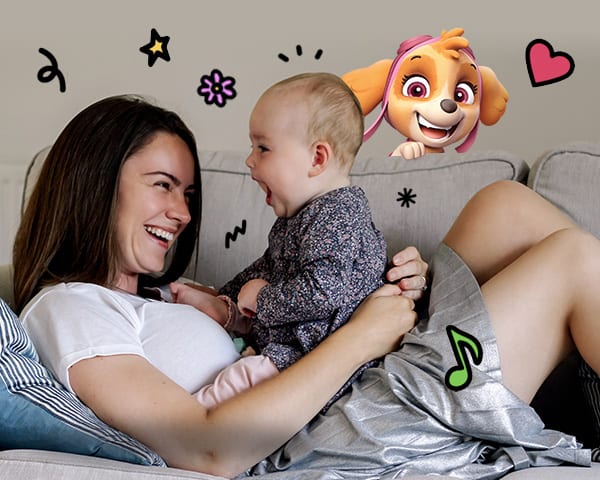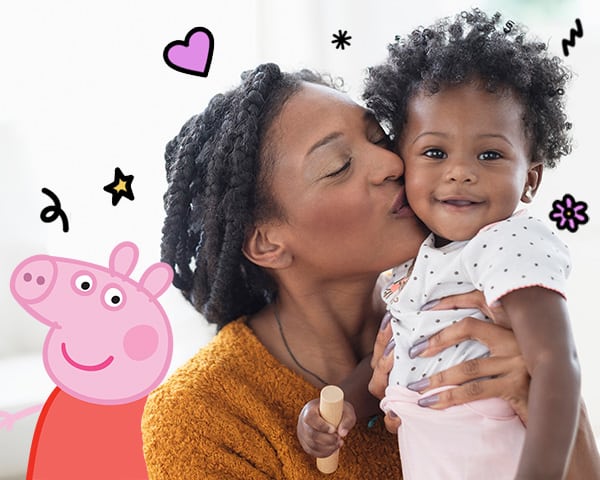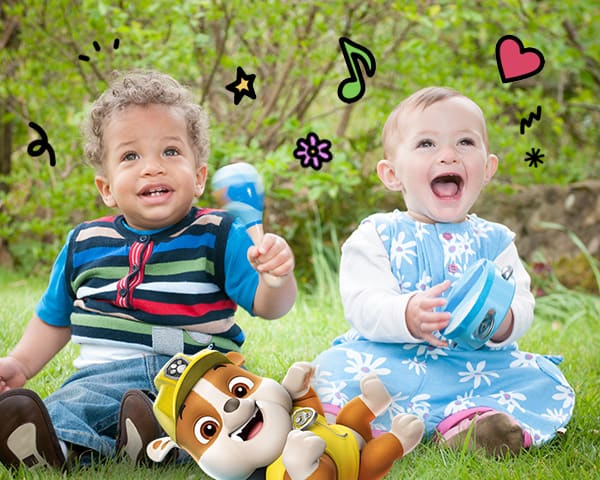May 2, 2021
by admin
Baby Feelings
Dora’s baby brother and sister might not express their feelings with words — but their little faces show that they DO have feelings and can express them.
All people — including babies — have feelings and can express them. Researchers agree that babies are born able to feel feelings from joy to distress, interest to disgust.
Parents, caregivers, and educators can play with babies to help them learn about feelings and how to manage them, even before they have the words to talk about their own feelings.

Read the Room
Age Groups: Babies
Skills: Feelings, Trust
Instructions
- Hi baby! How are you feeling right now?
- I see your mouth, eyes, arms, and legs! I hear the noises you are making. Where are you looking? How are you moving your body?
- I will use the clues you’re giving me to find out how you’re feeling.
- I’ll tell you how I think you’re feeling and I’ll guess what made you feel that way.
- What other clues do you have for me?
Vocabulary
Emotion: a deep feeling
Face: the front part of the head
Body: the physical shape of a person or animal

Kiss Kiss
Age Groups: Babies
Skills: Connection-Making, Feelings
Instructions
- Let’s get cozy and snuggle together — we can be drinking milk, reading books, singing lullabies, or just sharing a moment.
- I’ll say, “Kiss!” and kiss you once, “Kiss kiss!” and kiss you twice, or “Kiss kiss kiss” and kiss you three times. I feel so much love for you!
- Around 6-8 months, children start imitating our gestures. If your child is old enough, see if they’ll imitate your kisses. Soon, your child will learn to connect the word kiss with an actual kiss, and the feeling of love between you.
Vocabulary
Vocabulary Words:
Kiss: to touch with the lips
Love: to have deep feelings for
Follow: to go along or come behind

Make Maracas
Age Groups: Babies
Skills: Feelings, Self Regulation
Materials
- Empty plastic bottle
- Paper cup or other container
- Dried beans or pebbles
- Strong tape
Instructions
- Let’s make a maraca to shake, shake, shake — and then STOP! [This can help your child start learning about regulating feelings, in a fun way.]
- I’ll put some dried beans or pebbles into an empty container and seal it up.
- How does it sound when I shake it? If it’s too loud for you, we can add some cotton balls or balls of paper to make the sound quieter.
- Let’s shake our maraca! I’ll sing, “Shake shake shake!”
- Now, let’s stop shaking and STOP!
- Let’s try it again: Shake, shake, shake, STOP!

